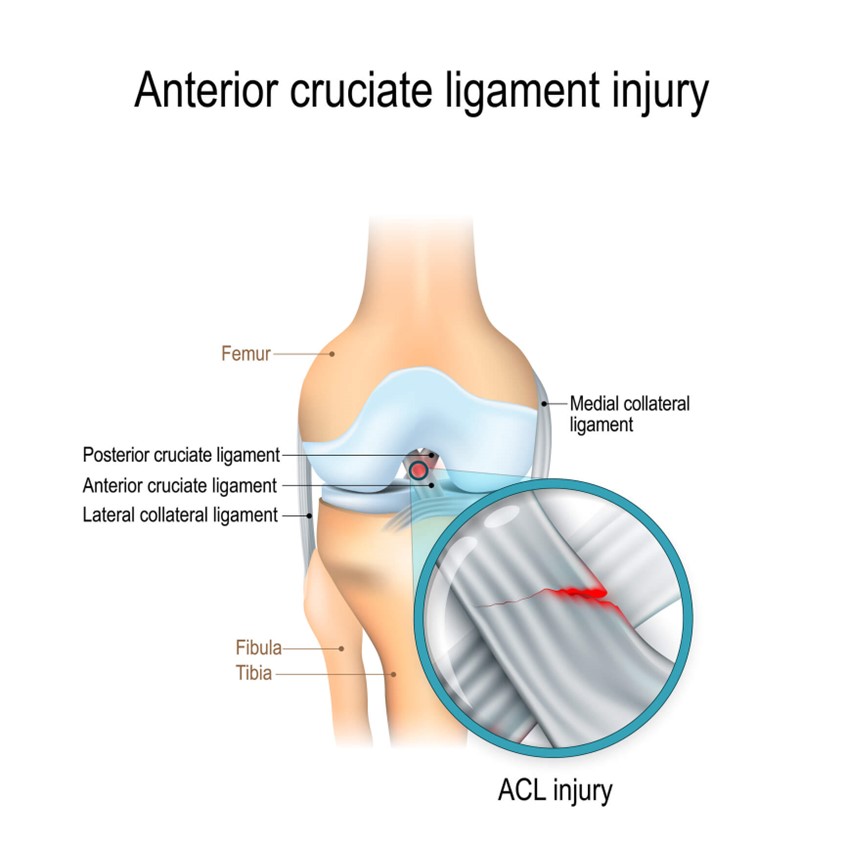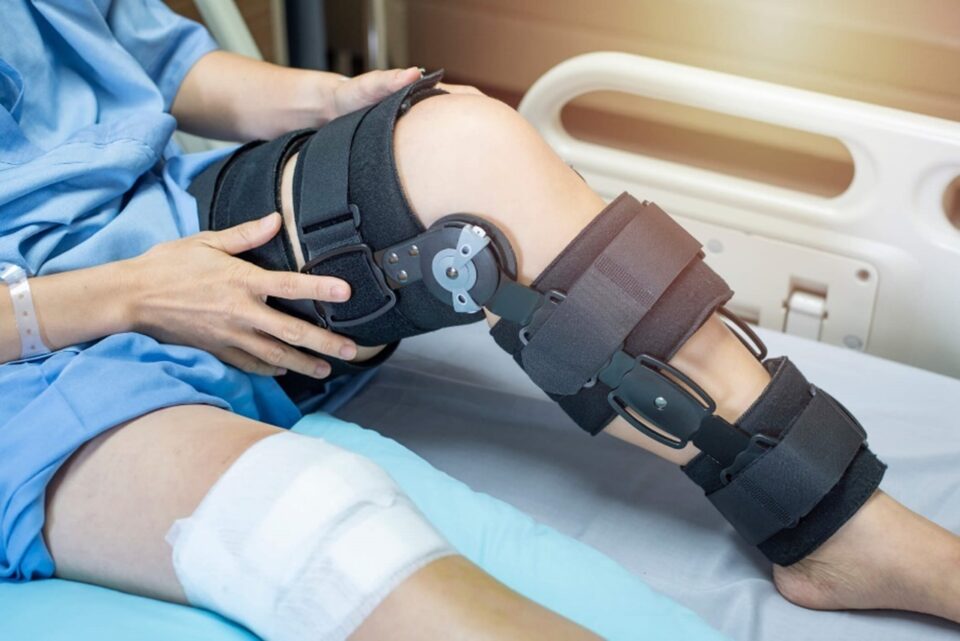ACL Surgery at Texas Institute of Orthopedic Surgery & Sports Medicine
Expert Care for ACL Injuries
At the Texas Institute of Orthopedic Surgery & Sports Medicine, we offer advanced ACL surgery designed to restore knee stability and function, allowing you to return to an active lifestyle. Our team of top orthopedic surgeons specializes in ACL Repair or Reconstruction, providing personalized care and using the latest techniques to ensure the best outcomes for our patients.

Understanding ACL Surgery
What is ACL Surgery?
ACL surgery is a surgical procedure designed to repair or reconstruct the anterior cruciate ligament (ACL) in the knee. The ACL is one of the key ligaments that help stabilize the knee joint, and it is crucial for activities that require sudden stops, jumps, or changes in direction, such as soccer, basketball, pickleball, and skiing. Injuries to the ACL can occur during sports or physical activities, often resulting from awkward landings, quick pivots, or direct collisions.
The surgery typically involves two main approaches: ACL reconstruction and ACL repair. In ACL reconstruction, the damaged ligament is replaced with a graft, which can be taken from the patient’s own tissue (autograft) or from a donor (allograft). The choice of graft is influenced by various factors, including the patient’s age, activity level, and the extent of the injury. Conversely, ACL repair is less common and involves suturing the torn ligament ends together, which may suit specific scenarios.
The primary goal of ACL surgery is to restore knee stability, alleviate pain, and improve overall knee function. Successful surgery allows individuals to resume their normal activities, including sports, with renewed confidence. Rehabilitation post-surgery is critical and typically involves a structured physical therapy program to strengthen the knee, regain mobility, and ensure a safe return to physical activities.
Who Needs ACL Surgery?
ACL surgery is generally recommended for athletes and active adults who experience significant knee instability after an ACL injury. If you’ve experienced a tear in your ACL, you might notice symptoms such as feeling your knee “giving way,” persistent pain, and swelling, especially during physical activities. These symptoms can significantly impact your quality of life and athletic performance.
In cases where conservative treatments such as physical therapy, bracing, and activity modification do not yield satisfactory results, surgery may be indicated. Additionally, if you are involved in high-impact sports or activities that put stress on the knee, surgery can help prevent further damage and ensure that you can return to your sport safely.
Ultimately, the decision to undergo ACL surgery should be made collaboratively with your healthcare provider, considering factors such as the severity of the injury, the level of physical activity, and the individual’s personal goals. Proper evaluation and discussion can lead to an informed decision that best addresses your needs and circumstances.
Why Choose Us for ACL Surgery?
Our team of surgeons are highly experienced in treating ACL injuries. We pride ourselves on delivering expert surgical care tailored to each patient's needs, ensuring optimal recovery and long-term knee health.
We offer customized treatment plans to suit your specific goals and requirements. Our approach ensures that every aspect of your care—from diagnosis and surgery to rehabilitation—is designed to help you achieve the best possible outcome.
We employ cutting-edge techniques, including arthroscopic ACL surgery. These advanced methods lead to improved results and my lower the risk of complications.
Our support extends beyond the surgery itself, with comprehensive pre- and post-operative care. This includes access to physical therapy, exercises tailored to your recovery, and continuous monitoring to ensure a successful rehabilitation process.
The ACL Surgery Procedure
Preparing for Surgery
Before your surgery, our dedicated team will work closely with you to ensure you are fully prepared for the procedure. This preparation includes comprehensive discussions about anesthesia options tailored to your specific needs, surgical preparation protocols, and a clear explanation of what to expect during your recovery journey. We prioritize your comfort and understanding, ensuring you’re informed about each step, from pre-operative instructions to what will happen on the day of the surgery. We’ll also address any questions or concerns you may have, ensuring you feel confident and ready for the procedure ahead.
The Surgical Process
1. Anesthesia: Depending on the nature of your surgery and your medical history, you’ll likely receive a general anesthesia as well as a regional nerve block, which will numb the area around your knee to minimize discomfort during the procedure as well as 1-2 days afterwards. Our anesthesiology team will discuss options with you, considering your preferences and medical background.
2. Incision and Arthroscopy: Small incisions—typically less than half an inch—are made around the knee during the surgery. These incisions allow the surgeon to insert arthroscopic tools, which are specially designed for minimally invasive procedures. Using these tools, the surgeon will have a clear view of the knee joint on a video monitor, allowing for precise repair or reconstruction of the ACL.
3. Graft Selection: To replace the torn ACL, the surgeon will select a graft, which can either be an autograft, taken from your own body (usually from the patellar tendon, hamstring tendon, or quadriceps tendon), or an allograft, sourced from a deceased donor. The choice of graft depends on various factors, including your activity level, age, and personal preference, as well as the surgeon’s recommendation.
4. Reconstruction: Once the graft is selected, it is meticulously anchored to the knee bones using screws or other fixation devices. This process is crucial to mimic the natural structure of the ACL, providing stability and restoring function to your knee. The surgeon will ensure the graft is positioned correctly to support your knee’s biomechanics, which is vital for your recovery and future activities.
Post-Operative Care
After surgery, you will receive detailed guidance on your post-operative care plan, which includes tailored physical therapy protocols and specific exercises designed to aid your recovery. Our experienced team will provide you with educational resources, clear instructions to help you manage pain and swelling, and information on how to care for your incisions.
We will closely monitor your progress during follow-up appointments, assessing your healing and making necessary adjustments to your treatment plan. This may include modifying your physical therapy regimen, introducing new exercises as you progress, and addressing any concerns that may arise. Our goal is to ensure a smooth and effective return to your everyday activities, helping you regain strength, mobility, and confidence in your knee. We are committed to supporting you every step of the way on your journey to recovery.

Benefits of ACL Surgery
- Expert Surgical Care: Benefit from the expertise of our leading orthopedic surgeons.
- Personalized Recovery Plans: Tailored rehabilitation programs to optimize healing and knee function.
- State-of-the-Art Facilities: Access to the latest technology and techniques in orthopedic surgery.
Frequently Asked Questions
What is an ACL Injury, and How is it Diagnosed?
An ACL injury involves tearing of the anterior cruciate ligament in the knee. Diagnosis typically involves a physical exam and imaging tests like an MRI to assess the extent of the injury.
How Do I Know if I Need ACL Surgery?
Surgery is generally recommended if you experience severe instability during physical activities or have a complete ACL tear, especially if you’re an active individual or athlete.
What Should I Expect Before, During, and After ACL Surgery?
Expect a consultation to discuss your surgery plan, followed by the procedure, which includes anesthesia. Recovery involves physical therapy and may take 9-12 months before returning to full activity.
What is the Recovery Timeline?
Recovery typically spans 9 to 12 months, depending on individual progress and adherence to the rehab program. Most patients can return to sports and normal activities within this period.
Are There Risks Associated with ACL Surgery?
Like any surgery, there are risks such as infection or blood clots, but these are minimized by following your surgeon’s instructions closely.
Your Next Step
Contact us to schedule a consultation with our Knee Specialists. Our team is here to guide you through every step of your ACL surgery and recovery.
